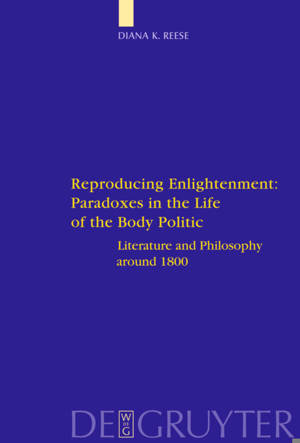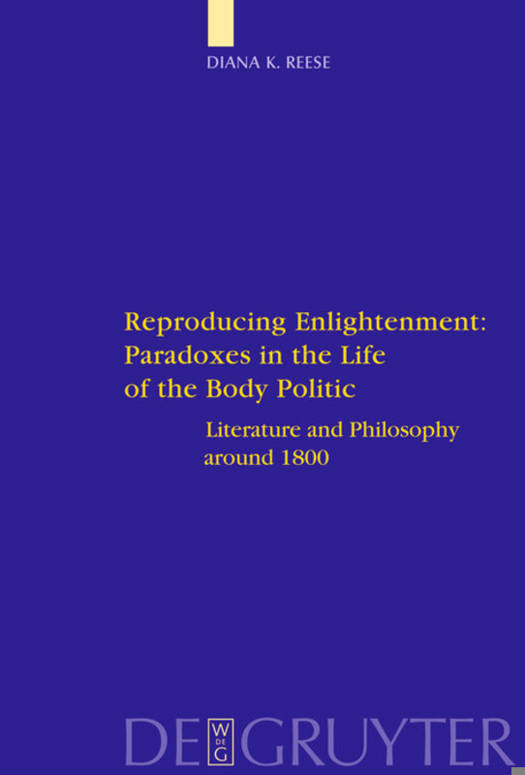
- Retrait gratuit dans votre magasin Club
- 7.000.000 titres dans notre catalogue
- Payer en toute sécurité
- Toujours un magasin près de chez vous
- Retrait gratuit dans votre magasin Club
- 7.000.0000 titres dans notre catalogue
- Payer en toute sécurité
- Toujours un magasin près de chez vous
Reproducing Enlightenment: Paradoxes in the Life of the Body Politic
Literature and Philosophy Around 1800
Diana K ReeseDescription
Written at the crossroads of aesthetics and politics, Reproducing Enlightenment: Paradoxes of the Body Politic interrogates the abstraction of the bearer of rights in Enlightenment thought by exploring contradictions between reproductive labor and political representation in the ideal of democratic citizenship. Drawing parallels between new definitions of biological form in Kant's Critique of Judgment and his popular writings on Enlightenment, Reese's study reveals connections between naturalist inquiry and the political category of self-evidence around the turn of the 19th century. Pursuing this connection into Weimar-Classical era aesthetics, Reese's scholarship sets the backdrop against which she proposes to read the formal literary innovations of Mary Shelley and Heinrich von Kleist. The careful comparison of textual compositions by Shelley and Kleist shows how these two authors refuse organicist metaphor and excavate the paradoxes of Enlightenment attempts to theorize the equality of a disembodied subject. Reproducing Enlightenment traces two anti-classical poetics that arc beyond the concept of juridical and biological self-evidence to touch the dialectics and dilemmas of recognition at the foundation of social being.
Spécifications
Parties prenantes
- Auteur(s) :
- Editeur:
Contenu
- Nombre de pages :
- 195
- Langue:
- Anglais
- Collection :
- Tome:
- n° 5
Caractéristiques
- EAN:
- 9783110206005
- Date de parution :
- 16-11-09
- Format:
- Livre relié
- Format numérique:
- Genaaid
- Dimensions :
- 156 mm x 234 mm
- Poids :
- 548 g

Les avis
Nous publions uniquement les avis qui respectent les conditions requises. Consultez nos conditions pour les avis.






